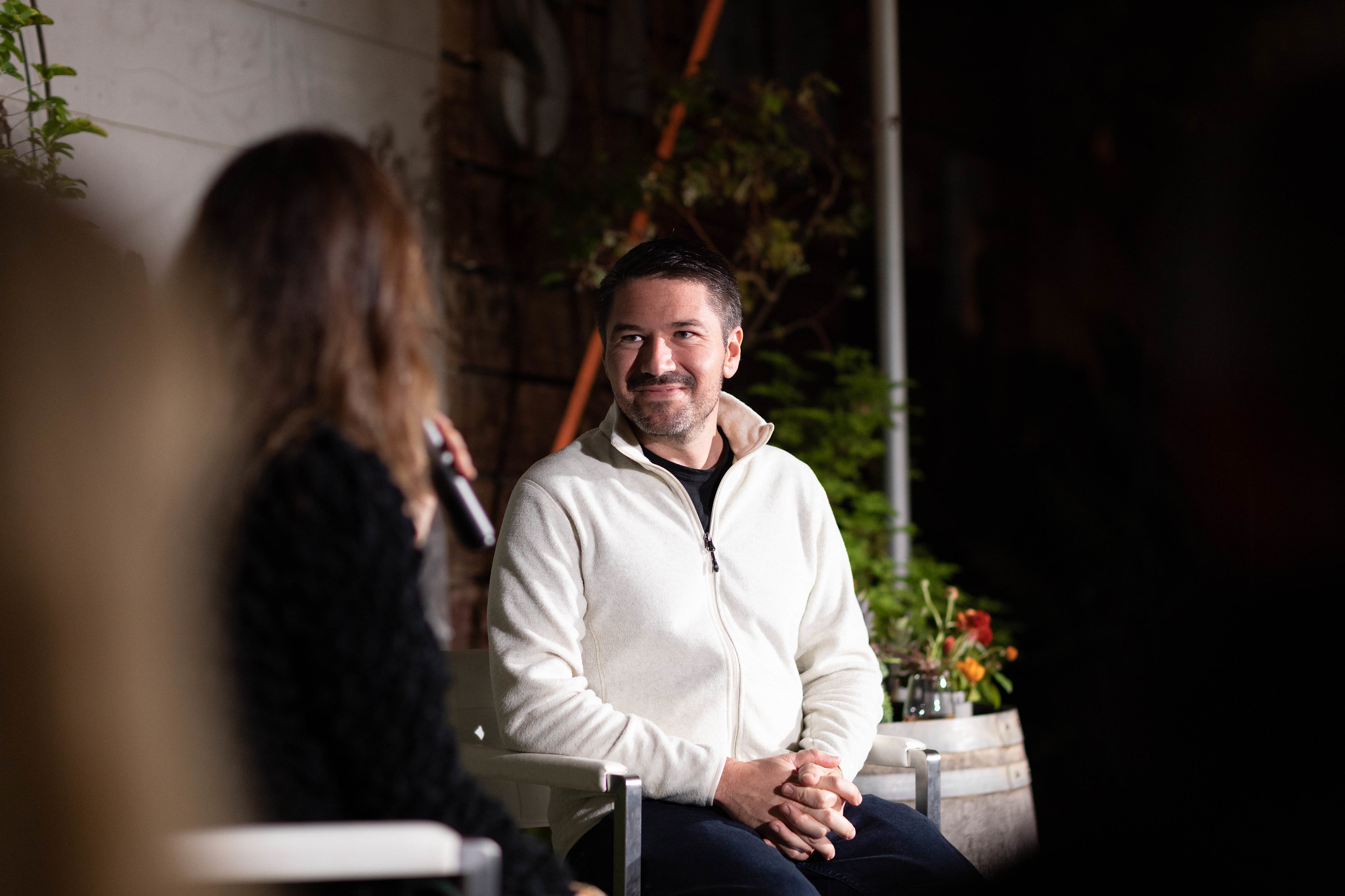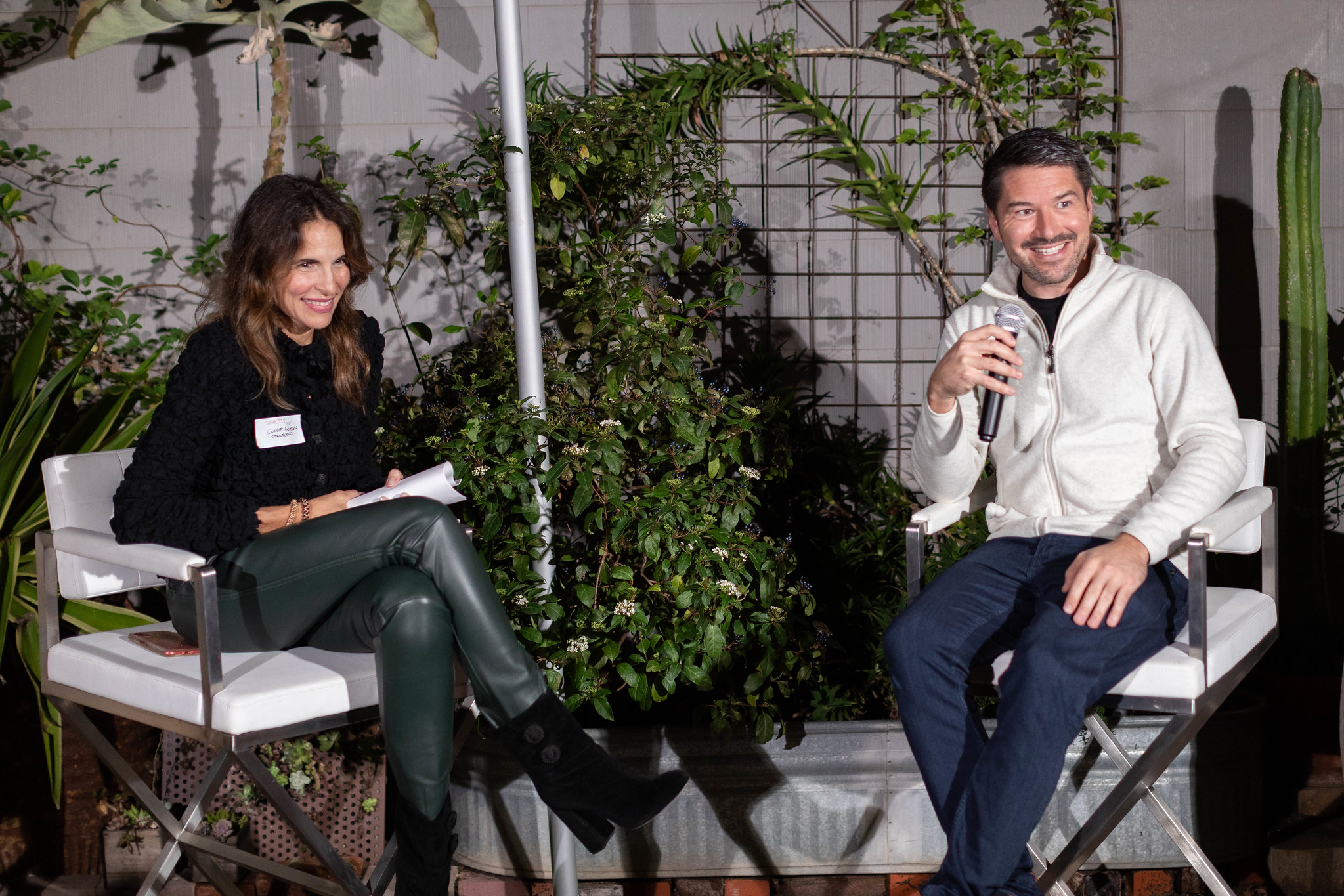In a world of copycat companies and investment firms that also increasingly operate in similar ways, Jack Abraham stands out a bit.
His venture firm, Atomic, only writes checks to startups it spins up itself. It’s launching a lot of startups, too. Since founding and selling a company called Milo to eBay in 2010 at the age of 24, Abraham has co-founded dozens of companies with Atomic in recent years. Among them: the tele-health company Hims & Hers, which went public last year through a blank-check company; Bungalow, an online marketplace for residential real estate that closed on $75 million in funding at a post-money valuation of $600 million in August; and OpenStore, an eight-month-old startup that acquires e-commerce businesses that sell on Shopify and which just today announced $75 million in fresh funding in a deal that reportedly values the company at $750 million.
Altogether, Atomic has produced 14 companies over the last 12 months, and that’s on top of nine that it formed the year earlier. Notably, it has done this with not enormous amounts of funding (it closed a $260 million fund earlier this year). Atomic doesn’t have a sprawling team, either, though it has made some key hires recently that bring its headcount to 50. (It was previously run by roughly 15 people.)
Little wonder that traditional venture firms are starting to wonder if Abraham might be on to something. To get insight into his playbook for their benefit — and our own — we sat down with him late last week while he was in town from Miami, where he relocated from the Bay Area last year. Excerpts from our conversation, edited for length and clarity follow. (You can also catch the full conversation below.)

Image Credits: Dani Padgett
TC: With valuations soaring so high, so fast, more and more VCs are talking about incubating companies in order to own more for a lot less capital. For their benefit, how is the sausage made at Atomic?
JA: I think in reality, it’s actually pretty difficult to do venture capital and building companies at the same time. You see some firms doing it, where partners might start a company once every two years or three years, and that’s because when you’re operating in venture capital, you’re in a receiving mode. You’re getting so much email, you’re getting deal flow, your job is to source, you’re in meetings all the time.
At Atomic, we show up every day and play offense with our cofounders to build companies. We’ve also really worked on scaling up our team [including to bring in experts in marketing, finance, healthcare, and recruiting because] you have to build a team of builders to be able to do this.
You don’t have a billion dollar fund; how do you pay for all that headcount?
A lot of venture capital funds take the fees from the fund and distribute them just to the partners. We’re really trying to invest in our team to grow the team and support our companies. We have an amazing legal team at Atomic, for example, and rather than get billed $1,200 for talking to someone at a corporate law firm, we have someone who is equal to them who will get charged that cost to the company. There are some resources that are billed at utilization based on how much our companies use them, but completely at cost, and that helps offset some of the costs of those services where our companies might have spent that money elsewhere.
You’e also saving money obviously by building companies in house and thus avoiding paying a lot for small stake in someone else’s startup. How do you generate an idea, and how do you think about Atomic’s ownership percentage over time?
We’re strong believers that it’s much better to observe problems in the world and come up with solutions for them … rather than doing brainstorming exercises. Sometimes those can lead to contrived ideas. So we try really hard across our portfolio to find patterns of things that are broken, problems that exist in industries we operate in, where whitespaces could exist, and note those problems. And we now have a list of well over 600 different company ideas that we can draw from. And we have a process for whittling those ideas down, testing them, getting smarter about them them, engaging experts and ultimately choosing which of them we want to build.
One advantage of our model [is] proprietary deal flow. Every company we create, our LPs get to invest in at predefined ownership levels. So by the time our companies come out and raise from venture capitalists, the ownership levels are much higher than most investors would have, which gives us room to play around with other investors and bring them in. We like collaborating with people. We have a lot of repeat customers that like working with us. We’re happy to be good citizens and figure out the right way to make that work.
It looks from past deals that Founders Fund is one of them. You even co-founded a company this year with Keith Rabois called OpenStore. Before we get to that, I wanted to ask about telemedicine. Atomic’s first big hit was Hims, which came together in anticipation of ED drug patents expiring, making it possible to sell generic versions. I wonder how replicable that model is and how closely you’re tracking the many other drugs falling off the patent cliff. Could those be 50 of the 600 business ideas?
[Hims was created in part from] an observation around “How do you find painful things people are suffering from, and get them treated online for [that condition]?” And “are there medications that are underpenetrated that could help those conditions?” … rather than some master strategy of observing when all drugs are coming off of patent and then tracking them all and seeing what we could build businesses off of. There are still a lot of opportunities in that space, but no, they do not comprise 50 of the 600 ideas.
You have a wide range of companies. Do you think in terms of sectors?
From the outset, in building Atomic, a lot of people told me, “Why don’t you specialize? Why don’t you just do one kind of company? Why don’t you just do e-commerce companies, for example?” In some ways that would be a lot easier, right? You can build common infrastructure, you can rinse and repeat, and everything can be cookie cutter. [But] Marc Andreessen is one of our investors, and he told me when I was starting Atomic that there are 15 companies that are produced each year that matter.
The odds that those big ideas are going to occur in the same sector over and over again is very, very low. So by definition, we chose to be agnostic. And that has led us into basically everything: healthcare, fintech, education, proptech, commerce, AI, SaaS, consumer products. Nothing is off limits for us. Nothing really scares us. And the world’s changing so quickly that I actually think you need to have that mindset to catch the next big thing.
How do you find — and financially motivate — the founders who you need to lead these companies?
There are two ways that we go about it. We can either start with the person or the people, or we can start with the idea. In the case where we’re starting with the person or people, we just want to work with them as an individual. We’re kind of totally agnostic to the idea. So we’re just like, “We’ll work on anything with you. Let’s find something that we’re both excited about, and let’s keep going.” We’ll also form companies sometimes where we start with the idea and we build the company up to millions of dollars of revenue, and then bring in the perfect person to run it, and we’ll still make them a co-founder and we still want to give them a huge amount of equity because we want them to be incentivized but based on where they’re coming in and how much value they’re adding that equity split can vary quite a bit.
You’ve founded many more companies than are listed on your website. Are some operating in stealth mode?
Yeah. Unfortunately, with some of the success comes copycats. And some of our companies that we’ve launched, we’ve had people in other studios literally rip off everything down to the fonts, the copy, the photos, the ad units, the messages in the ads, the pricing, everything. So we kind of have to keep our companies stealth because otherwise people will just copy them early on.
Now that we have a large fund and we can fund the company long enough where it can kind of hopefully hit escape velocity, we would like to do that and then bring it out to market and make it more public once it’s really hard to copy and it’s really working and scaling. So we have a few dozen companies that we’ve started at this point of which maybe half are public and half are still in stealth and crossing that chasm period where they’re growing, they’re accelerating, but we just don’t want to run into those situations if we can avoid them.
It seems like you are more involved with OpenStore than other companies. Why?

Image Credits: Dani Padgett
Keith [Rabois] and I have a great history. Keith was an investor in my first company, Milo. I’ve known him forever. I think the world of him, and I had this idea for OpenStore [because] there’s no liquidity for merchants that are creating e-commerce stores outside of Amazon. There are a lot of companies that are buying companies within Amazon. But if you’re a merchant on Shopify or any of these other players in the ecosystem, there tends to be no one who will acquire your company. You have to first cross a massive chasm and maybe get to $50 million in revenue before you get any offers like that.
So there’s this big liquidity gap in that market, and with OpenStore, we built a website that’s kind of like [the residential real estate company] Opendoor [which Rabois also co-founded] where you can [plug] in your house and get an offer. With OpenStore, you can [provide it] with your store, information on your store, [and] just your Shopify login, and we will underwrite your business and actually give you an offer that same day to sell your company. And we think it can totally change the game in that space. And Keith and I [share the vision] of how big OpenStore can become.
Part of the reason why I was more involved with that one is it was being built at my house, so I literally couldn’t escape it. It was in the downstairs area, and it was all hours of the day. Eventually, my girlfriend told me that had to stop [laughs], and we stopped that, but now we have our own office and the company’s doing great.
Any Web3 type ideas percolating?
I think Web3 is a massive opportunity … I think the thing you have to be a little bit careful about with Web3 is it’s one thing to be an investor in Web3 and it’s another thing to be a builder because the laws are kind of gray in the United States. And we always want to be careful around that. I think it’s a little bit easier to create a company with equity than create something in pure crypto. [So] we will be doing that more; it’s just a question of the degree of our going to do it.
